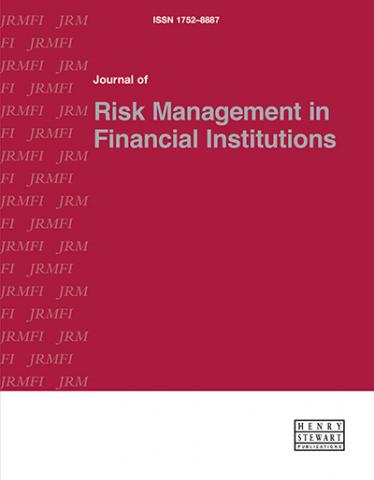“Protecting the information that customers have entrusted organisations with is one of the key challenges faced by many industries and needs to addressed by well trained, well informed and qualified professionals that have a deep understanding of the issues. The independent Journal of Data Protection & Privacy is a fantastic source of the most up to date thinking and best practise and should be a ‘must read’ for DP professionals….”
Analysing climate risk in the banking sector: To what extent should the onus be on banks to fund the ‘green deal’ while focusing on their own climate change and ESG risk profile?
Click the button below to download the full text of the article.
Abstract: Planet Earth's temperature has risen by about 1.1 degrees Celsius on average since the 1880s, confirmed by satellite measurements and by the analysis of hundreds of thousands of independent weather station observations from across the globe. This rate of warming is in an order of magnitude faster than any found in the past 65 million years of paleoclimate records — the rapid decline in the planet's surface ice cover provides further evidence of this.1 The banking industry is the custodian of global finance. It therefore has a central role to play in mitigating against this trend. After all, these are the institutions that occupy a key position as important catalysts in reorienting financial flows towards sustainable activities, supporting industries and governments in meeting climate risk and their environmental, social and governance (ESG) targets. However, should the onus be on the banking sector to drive this agenda? Yes, it has an important role to play, but should it be writing the overall global narrative? We will look at what banks are doing now to measure, and act upon, their own climate risk and ESG profile, and look at how much we should expect them to fund the overall ‘green deal’ or ‘clean’ strategy throughout 2022 and beyond. However, let us not forget, the banking sector has been focussing on money rather than ESG matters for centuries. For those new to the subject, we will also use this paper to provide some step-by-step advice and suggestions for what banks should be doing now to prepare for ESG issues. The paper opens with the theory, then moves into the practical, with a series of first-hand case studies. These cover the measures that Razor Risk's banking clients have been introducing to mitigate against climate risk, providing a critical reference point for the sector as a whole.
Keywords: ESG; risk management; climate risk; credit risk; liquidity risk; operational risk; regulatory risk
Richard Bennett as CEO in July 2019. He has extensive experience of assisting financial institutions worldwide in measuring and managing emerging risks such as climate and environmental risk whilst continuing to meet evolving regulatory guidelines and standards. He has worked for financial software companies including IT&e, Algorithmics, Infinity Financial Technology and BIS Banking Systems, working with clients to facilitate the measurement, management and control of the risks inherent in their banking and trading activities and shaping their responses to the changing regulatory environment. Razor Risk is one of the portfolio companies of Parabellum Investments, led by founder and CEO, Rami Cassis.



